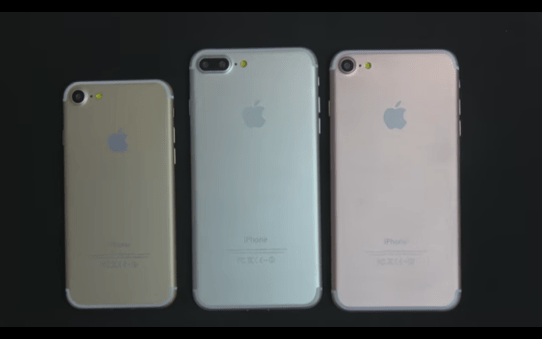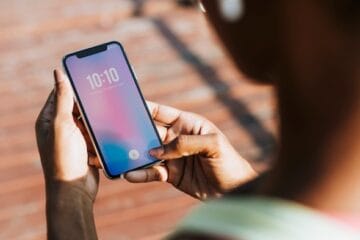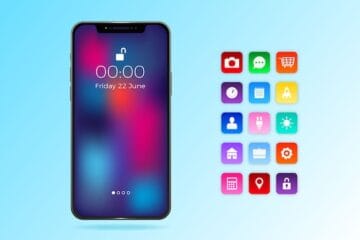Apple is preparing for the release the next generation of the iPhone at its annual event in San Francisco this September. Each year the Silicon Valley giant unveils a raft of new products in the Autumn, which can include new iPad, MacBook and Apple Watch models.
At the launch event next month, the company is expected to unveil an upgraded iPhone that, while aesthetically similar to the iPhone 6s and 6s Plus, could have several big differences, including a pressure-sensitive home button, better camera, power and battery life, as well as having no headphone jack.
Contents
What will it be called?
Reports have claimed that the upcoming iPhone could either be called the “iPhone 7” or “iPhone 6se”. As the latest handset is expected to feature smaller, iterative changes rather than a radical redesignanalysts have speculated that Apple could save the name iPhone 7 for next year’s 10 year anniversary release, and instead call this one the iPhone 6se.
The suggestion is in line with the launch of the iPhone SE in March, which was an upgraded version of the iPhone 5s. The big changes Apple is rumoured to be saving for the 2017 iPhone include that it could be made entirely from glass and have an edge-to-edge display with an OLED screen, a significant step forward from the LCD screens the company currently uses.
Separate rumours have suggested that Apple could release two 5.5-inch versions of the iPhone in September, one with a dual-lens camera that will be called the “iPhone Pro”.
What new features will it have?
The most significant changes anticipated for the new phone include anupgraded camera, the introduction of a pressure-sensitive home button and the removal of the 3.5mm headphone jack.
The bigger “Plus” model is expected to have an even-more powerful “dual lens” camera, and possibly a smart connector that allows accessories such as keyboards to be attached to it.
Killing the headphone jack
Rumours have consistently indicated that Apple will rid the iPhone of the headphone jack, instead shipping the phone with a pair of Lightning EarPods or wireless “AirPod” headphones, featuring Bluetooth or some other wireless standard.
It is likely to be a controversial move, although Apple has faced opposition over changes before, such as when it introduced the lightning connector with the iPhone 5 in 2012. Apple is likely to unveil an adapter that will allow typical wired headphones to be used.
Upgraded camera
While we don’t yet have any more details about the camera other than its larger appearance, it could have better low-light capabilities and take even sharper photos.
The 5.5-inch version of the handset could also come with a dual-lens camera, according to some leaked images. This could allow a huge increase in quality, with a second zoomed-in lens able to focus on important parts of the picture.
According to Bloomberg, the iPhone maker could replace the home button with a pressure-sensitive one that works like the iPhone 6s and 6s Plus’ “3D Touch” display.
Rather than being a switch that users have to physically press, the all-new button could use haptic feedback, which would allow Apple to make the phone bigger.
The forthcoming phone will most likely have a bigger battery than its predecessors and could feature a major upgrade to its specifications, giving the phone a big speed boost. There have also been suggestionsthe phone could feature faster charging technology.
There are also indications in the beta version of iOS 10, the software the phone will ship with, that it could be more water resistant.
When will it be released?
Apple has confirmed the date for its annual product launch event on September 7.

Prominent leaker Ev Blass reported that Apple will release this year’s model earlier than the iPhone 6s, which came out on September 25, 2015, and ship the new products from September 16. Apple normally takes a fortnight between the launch of its products and the public release.
However, a leaked retail schedule from AT&T suggests that it could go on sale on September 23. Reports suggest that supply could be limited at launch, with the Nikkei Asian Review claiming that problems with faulty components could lead to the phone being sold out.
What will it look like?
The new handset is expected to look very similar to the current iPhone 6s and 6s Plus, but with the antenna bands moved from the back of the device to the edges.
If Apple removes the 3.5mm headphone jack the phone might be 1mm thinner, but with a much larger, slightly protruding rear-facing camera that will be positioned closer to the top left hand corner of the phone. After initial reports that the camera would sit flush to the back of the phone, more recent purported leaks show a raised, convex lens.
Apple may add some more colours to its range of phones as well. Having last year introduced the “rose gold” iPhone, there have been suggestions that it could introduce a “space black” version that would be a lot darker than the current “space grey”.
How much will it cost?
For the last two years the cheapest model of the latest iPhone has cost £539. That price could rise this year in line with post-Brexit currency fluctuations and the rumour that Apple could ditch the cheaper 16GB model for the iPhone 7. This would make the smallest iPhone 32GB, a size that isn’t available for the iPhone 6s.
If Apple keeps the prices for its larger handsets the same, we can expect a 64GB iPhone 7 to cost £619 and 128GB £699.
Apple has been known to lower the price of its older handsets with the release of newer models, meaning the cost of an iPhone 6s could fall in September.
[Source:-Telegraph UK]




